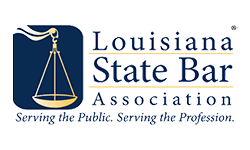With approximately 7,400 square miles of inland waters and more than 7,700 miles of tidal shoreline, the opportunities for enjoying a day on the water in the state of Louisiana are endless. Whether taking your boat to Glass Beach to spend time on the Mississippi River or heading south to the Gulf of Mexico, anyone who loves spending time on the water will be sure to find something close to Baton Rouge.
We know that most boat owners in Louisiana are responsible people who take care when taking any vessel out onto a body of water. However, no matter how safely you might pilot your boat, you cannot completely avoid crossing paths with those who do not prioritize safety.
Some of the most common injuries from boating accidents in Baton Rouge are the result of what should have been preventable accidents. If you’d like to discuss your legal options for an injury you suffered in a boat accident, please contact Bianca | Matkins at your earliest convenience to schedule a free consultation.
Common Injuries in Baton Rouge Boating Accidents
There are generally three ways in which someone might suffer an injury while boating. A boat collides with another boat or an object, a boat capsizes (overturns or is forced onto its side), or a person falls overboard. The exact type of injuries a passenger is most susceptible to will depend on the type of accident they are involved in, although there are some commonalities between all three types of accidents.
Some of the most common types of injuries that occur in boating accidents include:
- Head injuries
- Traumatic brain injuries (TBIs)
- Spinal cord injuries
- Drowning
- Lacerations (cuts)
- Whiplash
- Broken and fractured bones
- Ligament injuries
- Electrocution
Injuries that occur after a boating accident or in the water are particularly dangerous. Someone with a broken arm or a head injury may be unable to swim to safety, increasing their chances of taking water into their lungs. Even if they manage to avoid drowning at the moment, inhaling water can lead to respiratory distress hours after the initial accident. This is sometimes referred to as “dry drowning.”
If you’ve been involved in a boat accident and believe you may have swallowed or inhaled water, do not wait to seek medical attention—go to the nearest emergency room as soon as possible. Your health and safety are worth making this trip.
In addition to dry drowning, there is also the risk of electric shock drowning (ESD). Some boats have electrical systems and components that utilize a strong electrical current. In a boating accident where these components are damaged, or when a boat with damaged electrical components capsizes, there is the possibility that one or more passengers could suffer ESD.
What Causes Boating Accidents?
There are several different causes of boating accidents. No two collisions are quite the same, so if you’ve been hurt, it’s important to work with a lawyer who understands the many unique factors that may be at play in a boat accident claim.
Let’s review some of the more common causes of boating accidents in Baton Rouge:
- Operator inexperience
- Missing or inoperable navigation lights
- Operator inattention
- Operator error
- Distracted boating
- Operating under the influence of alcohol or drugs
- Improper speed
- Mechanical failures
Any time that a boat operator fails to keep a safe lookout, maintain a reasonable speed, perform upkeep on their vessel, or pay attention to the task at hand, a serious accident can occur. If it is determined that an operator’s negligence, carelessness, or recklessness contributed to the accident in which you were injured, you may have legal grounds to hold them accountable for their actions.
Safety Tips To Prevent Boating Accidents
You cannot control the actions of others. What you can do, however, is use safe boating practices every time that you choose to go out on the water. This will protect not only yourself and your passengers but everyone else you are sharing the space with as well.
To lower your chances of causing or being involved in a boat accident in Baton Rouge, Bianca | Matkins recommends adhering to the following safety precautions:
- Undergo mandatory boater education
- Abstain from alcohol and fatigue-inducing medications while operating or riding in a boat
- Maintain a safe speed to lower your risk of creating dangerous wakes
- Maintain your boat engine at idle when in “no wake” zones
- Place your phone in a safe, out-of-reach place
- Check the weather in advance
- Return to shore immediately if poor weather appears to be developing
The above actions will help you operate your boat in the safest manner possible. However, you should still wear a life jacket regardless of how safe or cautious you might be.
Louisiana Life Jacket Laws
The evidence is clear—life jackets are a life saver. Wearing a properly-fitted life jacket every time that you ride in or operate a boat will improve your chances of surviving a boat crashing or capsizing. The following details who is legally required to wear a life jacket in the state of Louisiana and under what conditions:
- All children aged 16 or younger must wear a Type I, Type II, or Type III U.S. Coast Guard-approved life jacket when riding in a boat that is less than 26 feet in length.
- On a boat that is less than 26 feet in length, a Type I, Type II, or Type III U.S. Coast Guard-approved life jacket must be onboard and available for every passenger aged 17 or older.
- Every individual onboard a boat that is propelled by a hand tiller onboard motor and is less than 16 feet in length must wear either a Type I, Type II, or Type III U.S. Coast Guard-approved life jacket.
- Every individual on a kayak, canoe, or pirogue must have a Type I, Type II, or Type III U.S. Coast Guard-approved life jacket at their disposal.
- An individual riding in a personal watercraft must wear a Type I, Type II, or Type III U.S. Coast Guard-approved life jacket.
You may also see or hear life jackets referred to as personal flotation devices, or PFDs.
Legal Options if You’ve Been Injured in a Boating Accident in Baton Rouge
If you’ve been injured in a boating accident in Baton Rouge, we invite you to schedule a free consultation with Bianca | Matkins. Every attorney at our Louisiana law firm has the requisite knowledge and skill to investigate your accident, build a strong case, and deal with the insurance company on your behalf.
We offer free consultations to accident victims in the Baton Rouge and East Baton Rouge Parish area. For an opportunity to speak one-on-one with an injury attorney in a no-obligation setting, please contact us as soon as possible.











